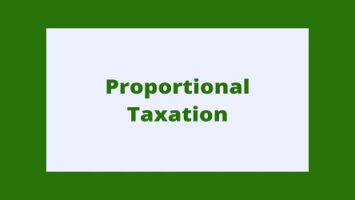Table of Contents
Distinction Between Direct and Indirect Taxes:
Dalton made a distinction between direct and indirect taxes as, “that a direct tax is really paid by a person on whom it is legally imposed, while an indirect tax is imposed on one person, but paid partly or wholly by another, owing to a consequential change in the terms of some contract or bargaining between them.” Thus, an indirect tax as conceived is one which can be shifted or passed on. It implies that in the case of direct taxes the impact or immediate money burden and the incidence or the ultimate money burden are on one and the same person; while in the case of indirect taxes, the impact and incidence of tax are on different persons. Hence, income and property taxes can be called direct taxes, while custom and excise duties are indirect taxes. Though it is commonly an accepted distinction between, direct and indirect taxes, but it suffers from the difficulty that it may not always be possible to trace the incidence of any tax exactly. For instance, it is difficult to find out whether a tax on the production of shoes has been passed on to consumers or not. Thus, the same tax may sometimes be direct and sometimes be indirect.
According to J. S. Mill, when, it is the intention of the government that a person, who legally pays the tax, must bear it; it is a direct tax. But when the government intends that a tax collected from one should be passed on to others, it should be called an indirect tax. Thus, the distinction is based upon the intention of the government or the legislature. But the government may intend that a particular tax should be shifted to the consumers, but such shifting may not finally take place.
According to Hartley, the distinction between direct and indirect taxes should be based on the immediate and not on the ultimate incidence. Taxes, which are legally shifted and those which are not shifted at all, are direct; but those, which are shifted quickly through commercial competition between consumers are indirect. According to Bastable, taxes levied on permanent and recurring occasions are direct but those levied on occasional and particular events are indirect. Hence, according to Bastbale’s definition, death duties which are now considered direct taxes would come under indirect taxes. According to Prof. Antonio de Viti de Marco, if the income of an individual is appraised directly, it is a direct tax. If an income is appraised indirectly when it is spent, is an indirect tax. However, both of these taxes are complementary. But, all these definitions suffer from one defect or the other.
Thus, considering all these things, Prof. Shirras distinguished the direct and indirect taxes, those levied immediately on property and income of persons and those that are paid by the consumers to the State direct are called direct taxes. Thus, according to Prof. Shirras income-tax, wealth, and corporation taxes that are directly paid to the State may be called as direct taxes. On the other hand, which affects the income and property of persons through their consumption may be called indirect taxes. Thus, customs and excise duties may be called indirect taxes. This is the most practical and convenient way to distinguish between direct and indirect taxes. It also conforms with the generally accepted view of direct and indirect taxes.
Merits of Direct Taxes:
A tax system is composed of both direct and indirect taxes. Each has certain merits and demerits as compared with the other. The following are the merits of direct taxes.
(1) Economy- The administrative cost of collecting these taxes is low because the same officers who assess small incomes or properties can assess larger incomes and properties. Moreover, the taxpayers make the payment of these taxes directly to the State, and therefore, every money that is taken out of the pockets of the taxpayers is deposited in the State’s treasury.
(2) Certainty- These taxes also satisfy the canon of certainty. The Taxpayer is certain as to how much he is expected to pay, and similarly, the State is certain as to how much it has to receive as income from direct taxes.
(3) Equity- Direct taxes are considered to be just and equitable because they are generally based on the principle of progression. Therefore, they fall more heavily on the rich than on the poor.
(4) Reduce Inequalities- As stated above, direct taxes are progressive in nature, and therefore, rich people are subjected to higher rates of taxation, while poor people are exempted from direct tax obligations. Hence, these taxes help to reduce inequalities in income.
(5) Elasticity- The taxes also satisfy the canon of elasticity, as the government revenue may be increased simply by raising the rates of taxation. Moreover, the income from direct taxes will also increase with the increase in income of the people.
(6) Civic Consciousness- It is said that direct taxes create civic consciousness among taxpayers. As the tax-payer may take an intelligent and keen interest in the method of public expenditure, whether the revenue raised is properly utilized or not. In a democratic country, this civic consciousness checks the wastage in public expenditure.
Demerits of Direct Taxes:
(1) Unpopular- Direct taxes are generally not shifted, and, therefore, they are painful to the taxpayer. Hence, such taxes are unpopular in nature and are generally opposed by taxpayers.
(2) Inconvenience- These taxes are also inconvenient in nature because the taxpayer has to submit the statement of his total income along with the sources of income from which it is derived., which is generally subject to complications. Moreover, the payment of these taxes in lumpsum is not as convenient to the taxpayer as the frequent payment of small amounts of indirect taxes. Hence, these taxes are said to be inconvenient to taxpayers.
(3) Possibility of Evasion- A direct tax is said to be a tax on honesty, it is not evaded only when the taxpayer is honest, otherwise, it can be evaded through fraudulent practices. Hence, it found that it can wholly or partly be evaded if the taxpayer decided to become dishonest.
(4) Possibility of Injustice- In practice, it is difficult to assess the income of all classes accurately. Hence, the direct taxes may not fall with equal weight on all classes. Moreover, the rates of direct taxes are arbitrarily fixed by the government and they may not be determined on the basis of the ability to pay.
(5) Exemption of Low-Income Group- If only direct taxation has resorted, the low-income group people cannot be approached through direct taxes, as they are normally exempted from such taxes on the basis of ability to pay.
However, direct taxes are advantageous and these objections to them arise out of administrative procedure rather than on grounds of fundamental principle. These objections can be gradually removed with experience.
Merits of Indirect Taxes:
(1) Convenient- Indirect taxes have the merit of being convenient. They are paid in small amounts and at intervals instead of in one lump sum. They are generally included in the price of the commodity and hence the burden of these taxes is not felt very much by the taxpayers. They are convenient from the point of view of the government also since the tax amount is generally collected from the manufacturers or the importers.
(2) Elastic- Indirect taxes can be elastic, i.e., the revenue from them can be increased. Whenever, the government may desire to do so, provided that these taxes are imposed on those articles the demand for which is inelastic. However, the principle of elasticity and the ability to pay generally conflict with each other. For instance, if heavy taxes are imposed on articles of common consumption, i.e., the demand for which is inelastic, they will fall more heavily on the poor than on the rich. On the other hand, the items of luxuries cannot be taxed heavily as their demand may be elastic.
(3) No Evasion- Indirect taxes are generally difficult to be evaded as they are included in the price of the commodity. A person can evade an indirect tax only when if he decided not to purchase the taxed commodity. However, indirect taxes can sometimes be evaded through smuggling and maintaining false accounts.
(4) Can be Progressive- Indirect taxes can be made progressive by imposing heavy taxes on luxuries and exempting articles of common consumption.
(5) Wide Coverage- Through indirect taxes, every member of the community can be taxed, so that everyone may provide something to the government to finance the services of public utilities. Hence, with the help of indirect taxes, the tax system can thus be made broad-based.
(6) Productive- The income from indirect taxes can be made highly productive, by imposing a few taxes each yielding a substantial amount of revenue. It may be easily possible if taxes are imposed only on those commodities the demand for which is inelastic. But, it should be noted that it may have adverse distributive effects.
(7) Social Welfare- Heavy taxation on articles that are injurious to the health and efficiency of the people may restrict their consumption. For instance, the heavy taxation on liquor and other intoxicants may restrict their use, which is obviously in the interest of the community as a whole.
All these things emphasize, that indirect taxes are good taxes in a tax system when they are productive, convenient, and approximately equitable. They are paid with less irritation than direct taxes. Revenue can be raised in multifarious ways by means of indirect taxation and the basis of taxation is thus broad-based.
Demerits of Indirect Taxes:
(1) Regressive- The indirect taxes are generally regressive in nature as they fall more heavily upon the poor than upon the rich.
(2) Administrative Cost- The administrative cost of collecting such taxes is generally heavy because they have to be collected from millions of individuals in small amounts. Therefore, they may be uneconomical.
(3) Discourage Savings- Indirect taxes discourage savings, because indirect taxes are included in the price, and therefore, people have to spend more on essential commodities. Hence, they discourage savings.
(4) Uncertainty- The income from indirect taxes is said to be uncertain, because the taxing authority cannot accurately estimate the total yield from different taxes, on account of the fact that the demand for different goods, subject to taxes, is influenced by so many factors. If the demand for these goods is elastic, the income may be less and vice versa.
(5) No Civic Consciousness- Indirect taxes are collected through middlemen like traders, and hence they have no direct impact. They are collected in small amounts, hence they are not felt very much by the tax-payer and do not arouse civic consciousness.
Concluding Remarks:
However, it is considered a sign of financial virtue of the taxing authority, if a proper balance is maintained between direct and indirect taxes. Generally speaking of burden of indirect taxes tends to fall more heavily on the poorer sections of the community, and that of direct taxes mainly on the richer sections of the community. In modern communities, most of the direct taxes involve large contributions from the rich than from the poor in proportion to their incomes, and, the opposite is the case with many indirect taxes. But, it is not always true and it is also possible that the burden of direct taxes may fall heavily on the poor and that indirect taxes on the rich. Thus, no value judgment can be passed on the relative merits of direct and indirect taxes which are alternative means of achieving income distribution. We, therefore, agree with Gladstone, the great Victorian statesman, who remarked that the direct and indirect taxes should be viewed as equally attractive sisters, neither of whom should be pursued too ardently. The government should pursue both with proper, and appropriate grace.









Comments (No)